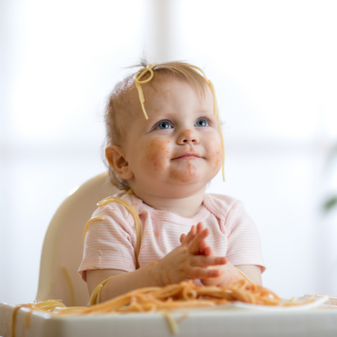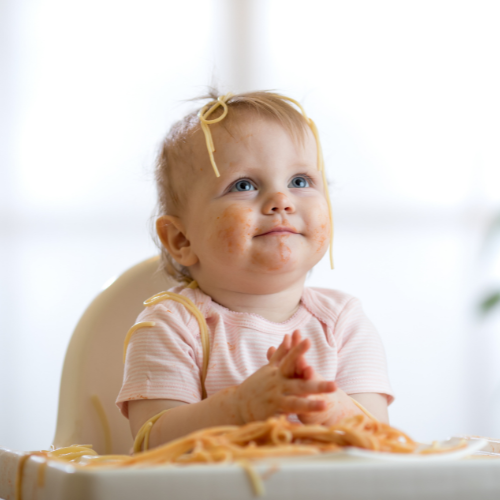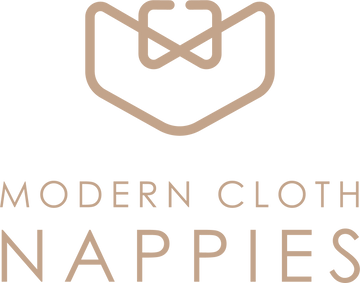Can Cloth Nappies Be Washed With Other Clothes?
Whether you’re new to cloth nappies or you’re a long-term lover of them, you may have found yourself wondering if cloth nappies can be washed with your other clothes. After all, ensuring that your washing machine is ¾ full is what you need to aim for when washing your reusable nappies. And if you don’t have quite enough nappies, then it makes sense to add in a few other pieces of clothing.
However, can you mix the two? Well, that depends on many factors. There are times when it’s perfectly fine to wash your cloth nappies with your other clothes, but equally, there are times when it’s best to keep them separate.
When Cloth Nappies Can Be Washed With Other Clothes
Before you load up your washing machine, consider a few things first. By following these tips, you can ensure that your nappies and the rest of your clothing is kept clean and in great condition.
When Cloth Nappies Can Be Washed With Other Clothes
Before you load up your washing machine, consider a few things first. By following these tips, you can ensure that your nappies and the rest of your clothing is kept clean and in great condition
Your Nappies Aren’t Heavily Soiled
Generally speaking, you may want to avoid putting heavily soiled nappies in the washing machine with your other clothes. This is because reusable nappies require a different washing routine compared to your regular clothing, bedding and other items. Reusable nappies must be pre-rinsed first to remove as much of the urine and faeces as possible, before you move on to a longer wash cycle of around 2.5 hours at 40 - 60°c. Washing at 30°c or lower is often not advised with cloth nappies as it will not kill all of the bacteria and germs.
However, if you are using disposable nappy liners or have a separate waterproof wrap and find that your nappies aren’t heavily soiled, you could combine them with the rest of your dirty washing. Just make sure that you follow the manufacturer's instructions carefully to prolong the lifespan of your nappies.
You’re Not Using Fabric Conditioner / Softener
Unfortunately, it’s not recommended that you use fabric conditioner with cloth nappies. There are two reasons for this. Firstly, it can affect the absorbency of the nappy, rendering it ineffective. Secondly, over time, using fabric conditioner can cause a build-up to form on the nappies. This build-up can cause the nappy to retain odours, reduce absorbency of the nappy and may increase the risk of nappy rash.
To ensure that your reusable nappies stay in great condition, you’ll need to avoid using fabric conditioners at all costs. If you like to use fabric conditioner with clothing or bedding to soften it and add extra freshness, then it’s advised that you do a separate wash.
However, if you’re washing small towels, you can add these to your reusable nappies. Towels shouldn’t be washed with fabric conditioner, either, so they can often go on the same cycle as your nappies.

You’re Washing Baby Clothes
Your baby's clothes will often be covered in food and stains (especially if you try baby led weaning!), so they can usually be washed with other stained items, like your reusable nappies.You may choose to put all of the stained items together on a pre-wash and a longer cycle, or alternatively, you can pre-washed the soiled nappies, then add in the rest of your baby’s clothes.Just remember to check the label on your baby’s clothes, as some manufacturers recommend that you wash at no higher than 40°c.
You’re Washing Baby Clothes
Your baby's clothes will often be covered in food and stains (especially if you try baby led weaning!), so they can usually be washed with other stained items, like your reusable nappies.
You may choose to put all of the stained items together on a pre-wash and a longer cycle, or alternatively, you can pre-washed the soiled nappies, then add in the rest of your baby’s clothes.
Just remember to check the label on your baby’s clothes, as some manufacturers recommend that you wash at no higher than 40°c.

You’re Washing Baby Clothes
Your baby's clothes will often be covered in food and stains (especially if you try baby led weaning!), so they can usually be washed with other stained items, like your reusable nappies. You may choose to put all of the stained items together on a pre-wash and a longer cycle, or alternatively, you can pre-washed the soiled nappies, then add in the rest of your baby’s clothes. Just remember to check the label on your baby’s clothes, as some manufacturers recommend that you wash at no higher than 40°c.
You’re Not Overfilling Your Washing Machine
One of the most important things to remember when washing your cloth nappies is to make sure they have enough room in the drum. If you add too many clothes to your washing machine, there won’t be enough space for your nappies, which can result in them getting tangled up in other items. If there’s not enough space for movement, your reusable nappies simply won’t get clean. You should always aim for your drum to be ¾ full. So, as long as you’re only adding a few extra items of clothing, you should be fine. However, it’s best to avoid larger items such as bedding, thick blankets and large bath towels.
You’re Not Using Bleach or Stain Removers
If you have other clothing that is heavily soiled, it would make sense to add it to your reusable nappy wash. However, this should never be done if you’re using bleach or stain removers. Cloth nappies are delicate and have to follow a specific wash and dry routine. Bleach and stain removers can damage the fabric of the nappies, making them unusable. Therefore, if you have stubborn stains on your clothing and you wish to use stain removers on them, put them on a separate wash. It’s not worth risking your reusable nappies by washing them together.
Conclusion
How to Care for Your Reusable NappiesIn conclusion, it’s perfectly acceptable to wash your cloth nappies with other clothes, as long as you are following the correct rules. To get the most out of your cloth nappies and ensure that they stay in excellent condition, make sure that you are caring for them correctly by doing the following:
- Always follow the manufacturer's instructions (all cloth nappies are different! Some are designed to be washed at lower temperatures, while others can be washed up to 60°c)
- Consider using non-bio detergent as this is the preferred option for cloth nappies
- Avoid fabric conditioner, bleach, baking soda and any harsh stain removers (the sun is the best stain remover)
- Try to avoid using a tumble dryer, instead air dry on a washing line or airer- Avoid washing your cloth nappies at very high temperatures as it will likely damage the fabric
- Always pre-wash your cloth nappies to get most of the urine and faeces outIf you follow these tips, your cloth nappies should stay in great condition and last for a very long time.




